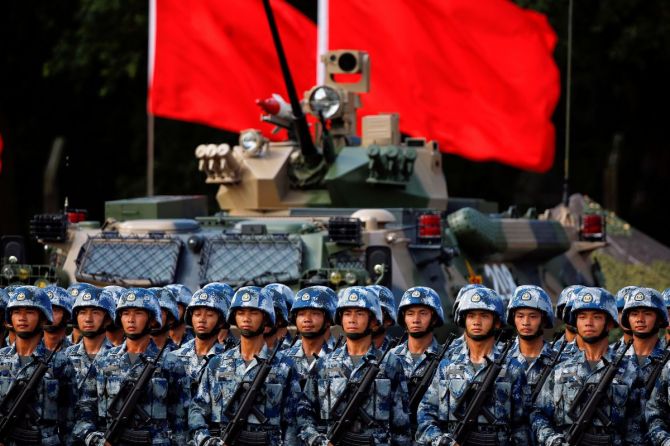China has revised its National Defence Law, expanding the power of its armed forces headed by President Xi Jinping to mobilise military and civilian resources to defend its national interests both at home and abroad.
The new law, effective from January 1, weakens the role of the State Council, China’s Cabinet headed by Premier Li Keqiang, in formulating military policy, handing decision-making powers to the Central Military Commission (CMC), the overall high-command of the two million-strong People’s Liberation Army (PLA) headed by Xi, Hong Kong-based South China Morning Post reported on Sunday.
Xi, 67, has emerged as the Communist Party of China’s (CPC) most powerful leader after its founder Mao Zedong, holding the posts of CPC General Secretary, head of the military besides the Presidency with prospects of a life-long tenure.
He is the only civilian leader in the CMC, packed with high-ranking military officials.
The amendments for the National Defence Law (NDL) were passed by the Standing Committee of the National People’s Congress (NPC) on December 26 last year.
The revised law came into force after the key conclave of the ruling CPC in November last year finalised plans to build a fully modern military on par with the US by 2027.
By the year 2027, which marks the centennial of the founding of the PLA, China will build a fully modern military, a goal that is in alignment with the national strength and will fulfil the future national defence need, official media reports earlier said.
The revised law specifically stresses the need to build a nationwide coordination mechanism for the mobilisation of state-owned and private enterprises to take part in research into new defence technologies covering conventional weapons, as well as the non-traditional domains of cybersecurity, space and electromagnetics.

